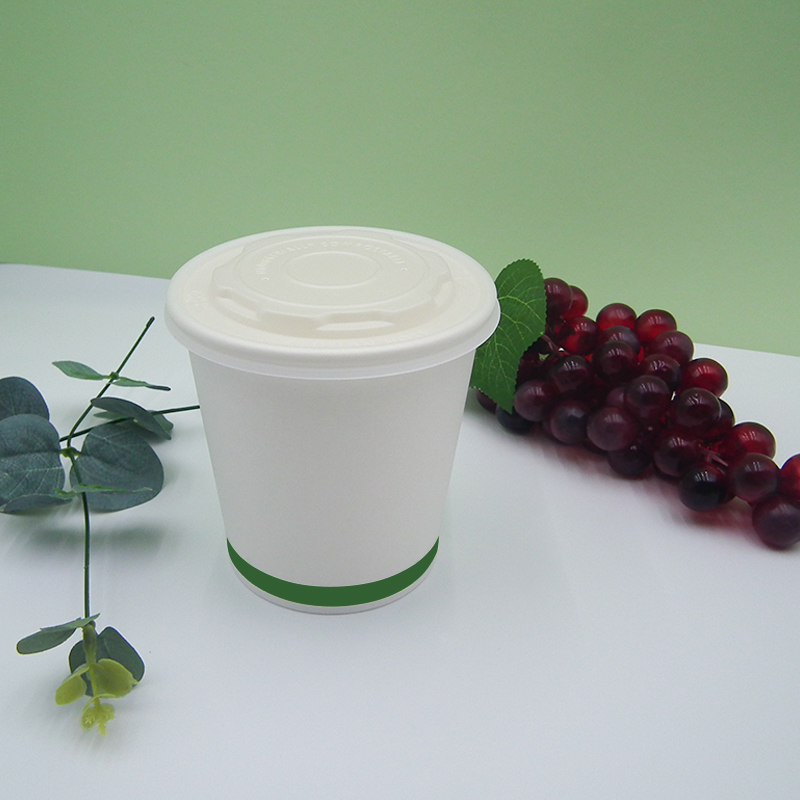
When it comes to serving hot soup, especially in environments where convenience and quick cleanup are priorities, disposable bowls are an absolute lifesaver. Let’s dive into the reasons why these bowls are becoming more and more popular, not just in commercial settings but also for home use!
Convenience of disposable bowls
The obvious and most celebrated benefit of using disposable bowls for hot soup is their remarkable convenience. Imagine hosting a large family gathering or a friendly get-together; the last thing you want is to end up with a mountain of dishes to wash after everyone has left.
Disposable bowls make serving and cleanup a breeze. You can quickly serve your delicious hot soup without worrying about the aftermath cleanup. Plus, they are perfect for on-the-go meals, picnics, and outdoor events where carrying traditional cookware is simply impractical.
Eco-friendly options available
In the past, a major drawback of disposable tableware was its impact on the environment. However, with growing awareness and technological advancements, we now have access to eco-friendly disposable bowls.
These options are made from sustainable materials such as bagasse (sugar cane fiber), recycled paper, and PLA (polylactic acid) which is derived from renewable resources like cornstarch. Not only do they offer the same convenience as traditional disposable bowls, but they also provide a guilt-free way to enjoy your hot soup without harming the planet.
Selecting the ideal biodegradable paper bowl for hot soup might seem straightforward, but to ensure satisfaction and align with environmental consciousness, certain criteria need to be considered. Let's break down the essentials to look out for when picking out the best disposable soup bowls.
Microwave-safe options
Now, this is a game-changer for many. In our fast-paced world, the ability to quickly heat up a serving of soup in the microwave is a must. Therefore, when selecting disposable bowls, it's crucial to check if they are microwave-safe.
Not all materials are suitable for microwaving as they can melt, warp, or release harmful chemicals when heated. Seek out bowls that are explicitly labeled as microwave-safe. This feature not only highlights the versatility of the bowl but also ensures you can enjoy your hot soup just the way you like it, without any health risks.
Materials used
The material of your disposable soup bowl plays a significant role in both its functionality and its environmental impact. Here are a couple of popular options:
- Bagasse Bowls: Made from sugarcane fibers, sugarcanebagasse bowlsare compostable, sturdy, and have a lower carbon footprint compared to traditional plastic bowls. Their natural insulation properties also make them great for holding hot foods.
- Paper Bowls: Although not as sturdy as bagasse, takeaway paper bowls are lightweight, often lined with a wax or plastic coating to prevent leaks. While convenient, it's important to choose bowls that have a biodegradable or compostable lining to reduce environmental impact.
Remember, the goal is to balance practicality with sustainability. Both materials have their perks, but your specific needs and values will guide your choice.
Sustainability and eco-friendliness considerations
In our current global situation, the importance of sustainability cannot be overstated. Disposable doesn’t have to mean harmful to the environment. As conscious consumers, we should aim to choose bowls that are not only convenient for us but also kind to the planet. Here are some key sustainability considerations:
Compostability: Look for bowls that are certified compostable. This means they can break down in a composting setting, turning into nutrient-rich soil instead of languishing in landfills.
Recycled Materials: Bowls made from recycled content reduce the demand for virgin materials, thereby conserving resources and reducing pollution.
Reusability: Although not a typical feature for disposable bowls, some options are sturdy enough to be used more than once before disposal. This can reduce the overall environmental impact.
Choosing disposable bowls for hot soup doesn't mean you have to compromise on environmental ethics. With the growth of eco-friendly products, it's entirely possible to find an option that meets both your practical needs and your desire to protect the environment.
Whether it's for a large event, a quick meal at home, or anything in between, keeping these considerations in mind will help you make the best choice for your needs and for the planet.